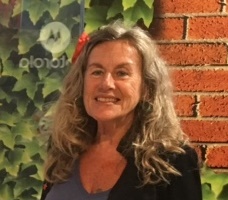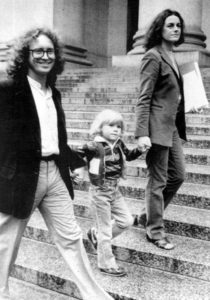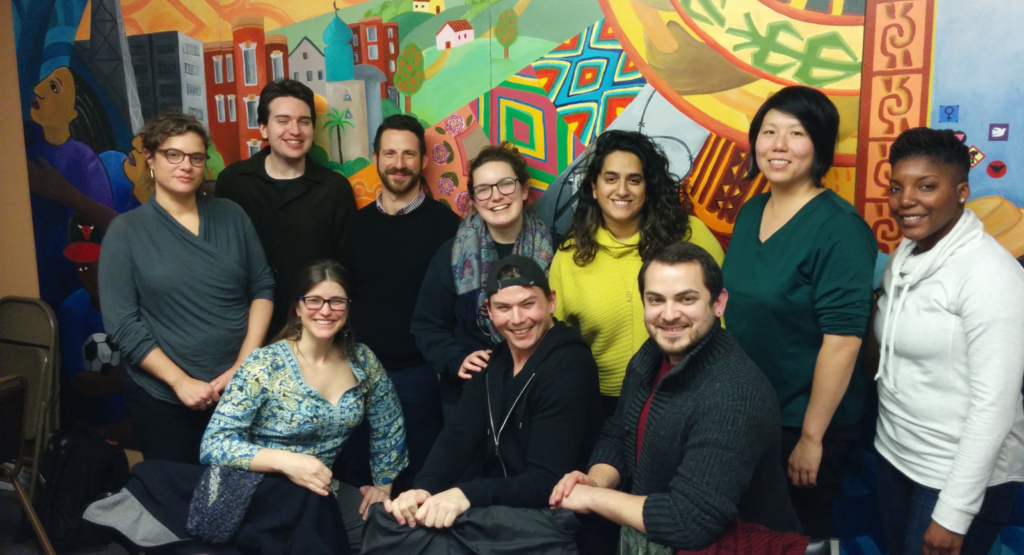
Top row from left: Adi Lerner, Nickolas Kaplan (outgoing), Daniel Edelstein, Miranda Huber, Shubra Ohri, Sandra Tsung, Samoane Williams
Bottom row from left: Anna Maitland, Kris Clutter, Alexis Rangel
No election was held in November 2017 because it was uncontested. Our new board members are Adi Lerner and Daniel Edelstein. Here are the bios of the current board members so you can get to know them better!
Adi Lerner
A strong believer in the power of communities, Adi has spent her career working in grassroots organizations, as an organizer, educator and advocate. She is honored to serve on the NLG board and looks forward to support movement building and developing radical spaces for the Chicago organizing community. Adi is a human rights attorney from Israel, currently serving as the Program Director at the Westside Justice Center. In Israel, Adi worked on a range of human rights issues, including state accountability for torture, prisoners’ rights, punitive house demolitions and humanitarian law. During law school, Adi worked as the head of the Hotline for Refugees and Migrants’ Crisis Intervention Center, working with communities and volunteers to provide direct services and promote the rights of undocumented refugees and migrants in Israel.
Alexis Rangel
Alexis J. Rangel is a recent graduate of Loyola University Chicago where they obtained a Master of Public Policy and a Juris Doctor with certificates in Public Interest Law and Child & Family Law. During law school, Alexis served as an Executive Board Member for the Loyola NLG Chapter, President of the LGBT student group OUTLaw, a Student Board Member for LAGBAC, and Director of Policy Initiatives for the National Latino/a Law Student Association. As a community organizer and policy professional, they are most passionate about helping radical progressive movements achieve substantive legislative change. To that end, Alexis has served in legislative offices at the city, county, state, and federal levels, and is currently working on political campaigns to elect progressive legislators and judges.
Anna Maitland
Anna Maitland’s interest is in working with and alongside marginalized and underserved communities to support their vision and leadership in the struggle to create progressive and sustainable change. She sees the NLG as a venue towards building up and supporting this approach to advocacy while developing creative and collaborative spaces for accountability, reflection, and radical change in movement-based lawyering. Anna currently serves as a staff attorney with the Immigrants and Workers Rights working group at LAF. She previously worked on health as a human right with the Northwestern Human Rights Law Clinic and prior to coming to Chicago, she co-founded a social and economic rights non-profit in Nigeria that partners with communities impacted by poverty to hold government and private actors accountable. She is honored to serve on the board and looks forward to continuing to work with the incredible people that make up the NLG.
Daniel Edelstein
Throughout my short time in the law, NLG has been a motivating and supportive community. As a student chapter president and learning from NLG lawyers, I’ve come to understand how lawyers can be leading voices for justice. My interest in joining the board is based in a deep appreciation for NLG’s commitment to combating injustice in all of its forms. As a board member, I hope to build NLG’s position in Chicago as a leader in legal advocacy and social justice activism. I would like to ensure that current goals and strategic plans are achieved. I hope to identify new funding streams and develop new partnerships to ensure that NLG’s work is driven by the current needs of the Chicago community. Finally, my work is focused on food law and policy, so I hope to identify ways for NLG to be part of food justice movements. I’m part of the Advocacy Working Group of Advocates for Urban Agriculture, a board member of First10 Public Interest Network, Young Professionals Board, a Legal Assistance Foundation
and Chicago Bar Association member.
Joe Moses
My name is Joe Moses and I have been been active in the Guild, on and off, since resurrecting my law school chapter at John Marshall Law School in the early 90’s. Several years, ago, I re-joined the guild and see it as a way of combining my civic and professional talents, needs and goals. The law firm that I started with my partner out of law school is in its 25th year. We primarily represent victims of motorcycle or bicycle collisions. This is my second year serving on the Chicago NLG Board. I have been active in the Dinner Planning Committee that has provided most of the operating expenses for the Chicago chapter. I aided in hosting the national NLG conference here in Chicago a couple of years ago. I am a member of the American Association for Justice and NLG. I am a member of the Bar of Texas, Tennessee, Pennsylvania, Wisconsin, Oregon, Georgia and Illinois. Additionally, I have worked in Wisconsin throughout the Obama administration as a poll watcher and vote protector. While a resident of Illinois the entire time, I traveled on election days to protect the process in the swing state of Wisconsin.
Kris Clutter
Kris Clutter is a legal worker at the People’s Law Office (PLO). The PLO has been successfully fighting for the civil rights of victims of police brutality, wrongful convictions, false arrest and other government abuses for over 40 years. Kris has worked at the PLO since 2012. He was introduced to the National Lawyers Guild through the PLO and has been actively going to the fabulous NLG happy hours for many years. Kris has been on the NLG Chicago board since November of 2016. Before joining the board, Kris served on the board of the now defunct police watchdog organization Citizen’s Alert and helped organize and start the Chicago chapter of Black and Pink, an open family of LGBTQ prisoners and “free world” allies who support each other. He hopes to help build and strengthen the Chicago chapter while also creating a fun social environment for progressive lawyers, legal workers, and law students.
Lillian McCartin
Lillian M. McCartin is a criminal defense attorney in solo practice in Chicago. She obtained her J.D. from Chicago-Kent School of Law, with a Certificate in Public Interest Law. In her practice, she represents individuals from all walks of life who have been charged criminally for misdemeanors and felonies. Her clients have included activists and radicals who have committed civil disobedience or otherwise faced criminal charges resulting from their political actions and associations. She has been active in the National Lawyers Guild as former president of the Chicago-Kent Chapter, co-coordinator of the Next Gen Committee of the Chicago Chapter, as a coordinator of criminal representation for the Chicago Mass Defense Committee, and she has served on the Chicago Board since 2015. She hopes to strengthen the local NLG chapter so it becomes a dependable resource for radical and progressive lawyers, legal workers and law students.
Miranda Huber
Miranda Huber serves on the NLG board as the Student Representative. Her role allows her to connect with Chicago-area law students interested in movement lawyering and to ensure they know about all the opportunities available to them through the Guild. She is also on the board of the NLG chapter at Chicago-Kent, where she is in her 2L year and focuses her studies on labor and employment law. In addition, Miranda is on the Labor and Employment Committee of the Chicago NLG. Miranda is interested in how the labor movement can listen to, uplift, and center workers’ voices. In her free time, Miranda enjoys NPR, knitting, and hanging out with whatever cats may be nearby. She hopes to help the Guild take on new projects, welcome new folks into its bond, and build its capacity to create a more inclusive world.
Samoane Williams
Samoane Williams is the Policy Director at Raise the Floor Alliance where she advocates for low wage workers city and statewide. She started her career at First Defense Legal Aid where she helped the organization lead the Chicago police accountability movement by providing legal representation to clients and advocating for policy changes to preserve custodial suspects’ rights. She also organized volunteer attorneys and law students to join the movement. As a passionate advocate for social justice, Samoane understands her work in social justice to be a lifestyle rather than a job. She spends her free time volunteering with the Chicago Community Bond Fund. Samoane has been a member of the National Lawyers Guild since 2014 and joined the board in 2016. She is also a member of the Chicago The United People of Color Caucus (TUPOCC) subcommittee of the National Lawyers Guild.
Sandra Tsung
My name is Sandra Tsung and I have been a Guild member since 2008 and a member of the Chicago board since 2012. Since 2015, I have served as the chapter’s Treasurer and as our Mentorship Program Administrator, which is a program we run in partnership with the IL Supreme Court Commission on Professionalism. I graduated from DePaul University College of Law in 2010 and initially practiced as a solo attorney, but my work now is in attorney training and development. Even before I became a member of the Chicago board, I was involved in many of the chapter’s projects and programs. Since 2010, I have served as co-chair of our CLE Committee and as a member of the Dinner/Annual Fundraising Committee. I have also been involved in our local TUPOCC and Next Gen Committee, the latter of which I formerly co-chaired.
Shubra Ohri
Shubra Ohri is an attorney at the People’s Law Office where she concentrates her practice on representing people who have suffered from police misconduct, government misconduct and wrongful convictions. Her advocacy has taken her from federal civil courts to the United Nations. Before joining the People’s Law Office, Shubra worked at the Chicago Lawyers’ Committee for Civil Rights and the Death Penalty Worldwide project based at Northwestern University School of Law’s Center for International Human Rights. Prior to her legal career, Shubra worked as a human rights advocate in Egypt, Turkey, Jordan, Palestine and India. She is a proud member of the Chicago Torture Justice Memorials project and The United People of Color Caucus of the NLG.
Stephanie Ciupka
Stephanie Ciupka is a staff attorney and Equal Justice Works Fellow at the Lawndale Christian Legal Center (LCLC), sponsored by Latham & Watkins, where she provides holistic criminal defense services to young adults. She recently graduated from Northwestern Pritzker School of Law (J.D. 2017). During law school, she worked on criminal cases through the Bluhm Legal Clinic, and interned at the Cook County Public Defender, LCLC and CALA. She served on the boards for Northwestern’s NLG Chapter, If/When/How, Public Interest Law Group and SFPIF. At graduation, she was honored to receive the Service Award for dedication and commitment to public service by the legal profession. Previously, Stephanie studied Public Policy at the University of Chicago (B.A. 2010), before serving in Peace Corps Peru (Water and Sanitation, 2010-2012).
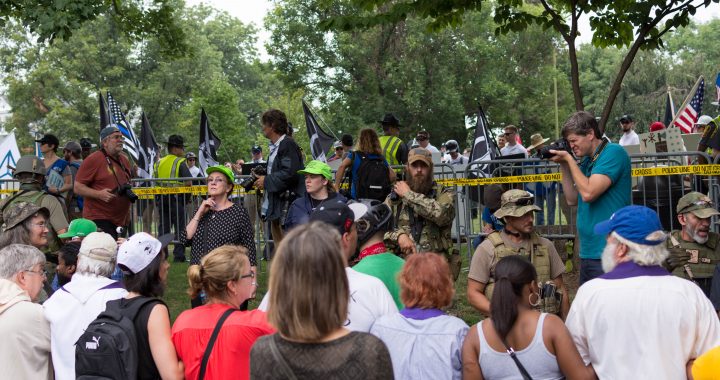
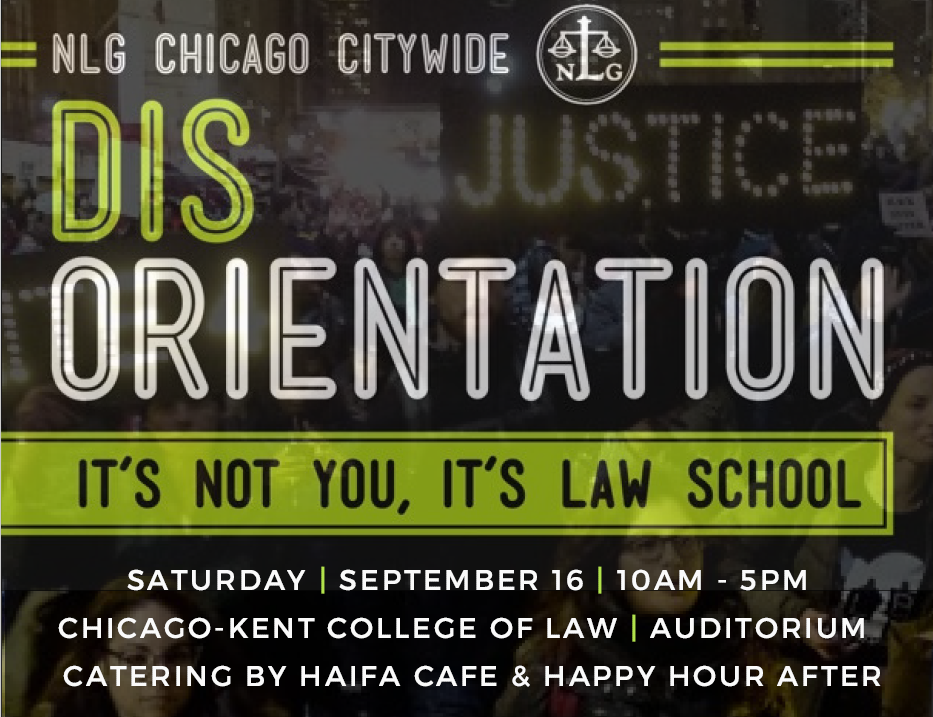
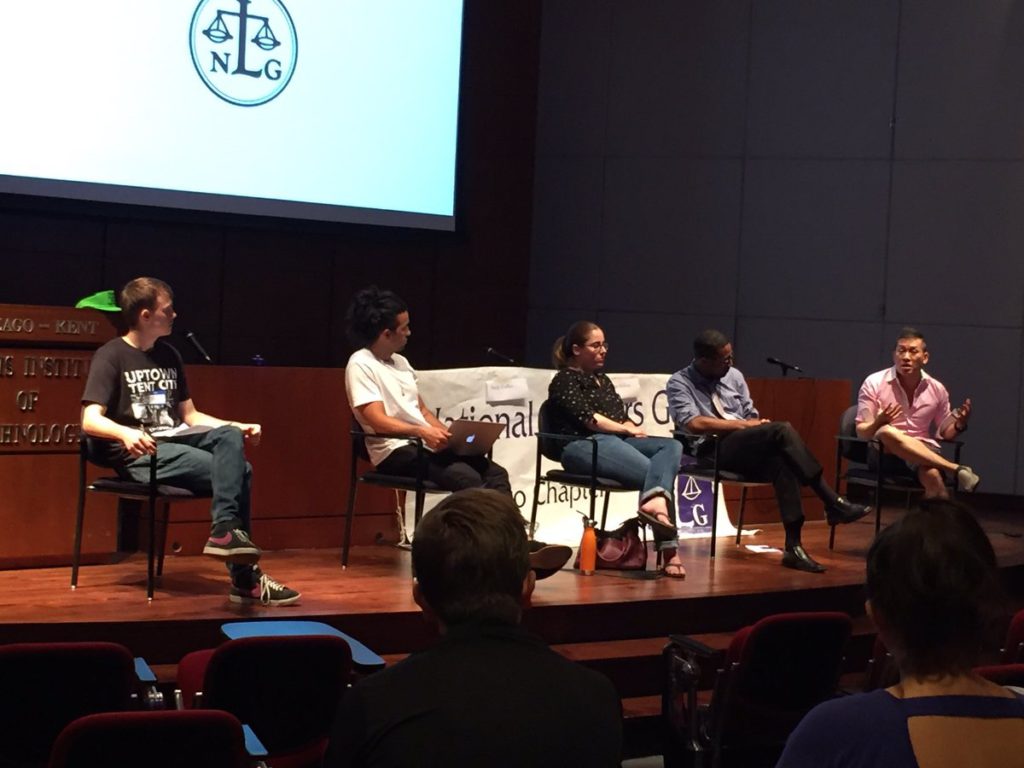
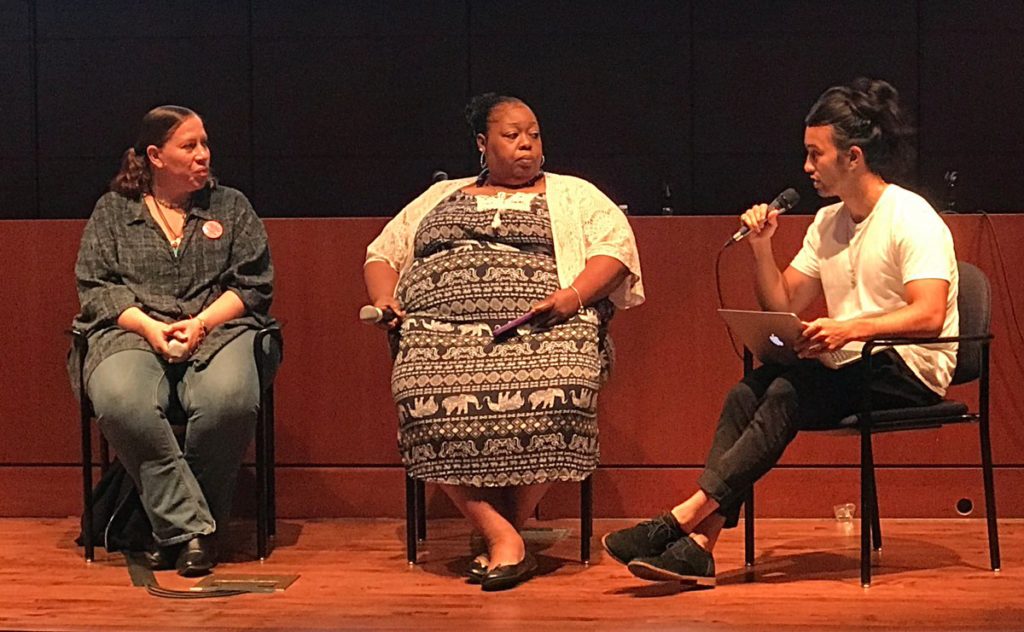
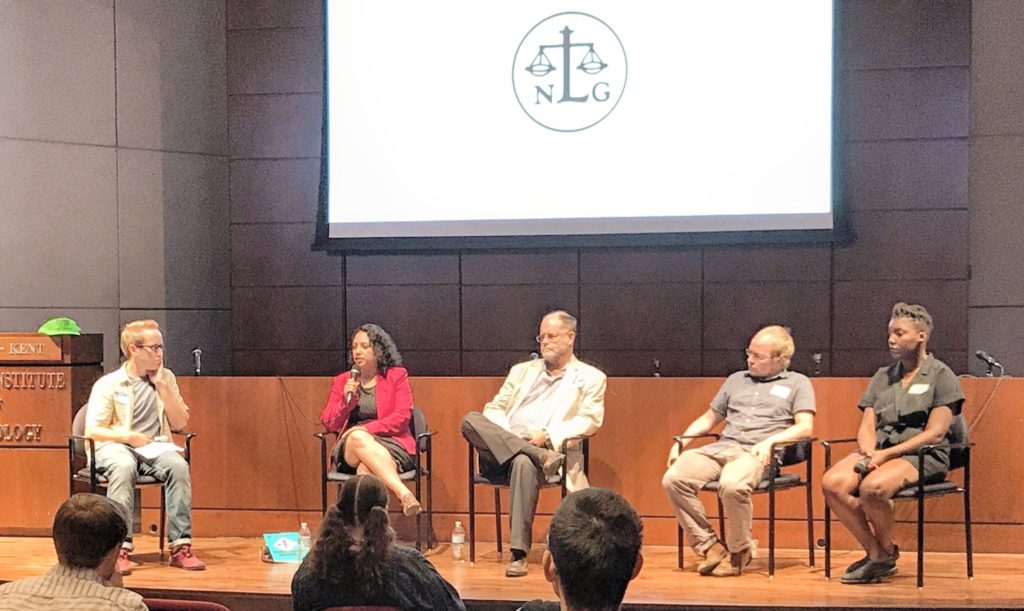
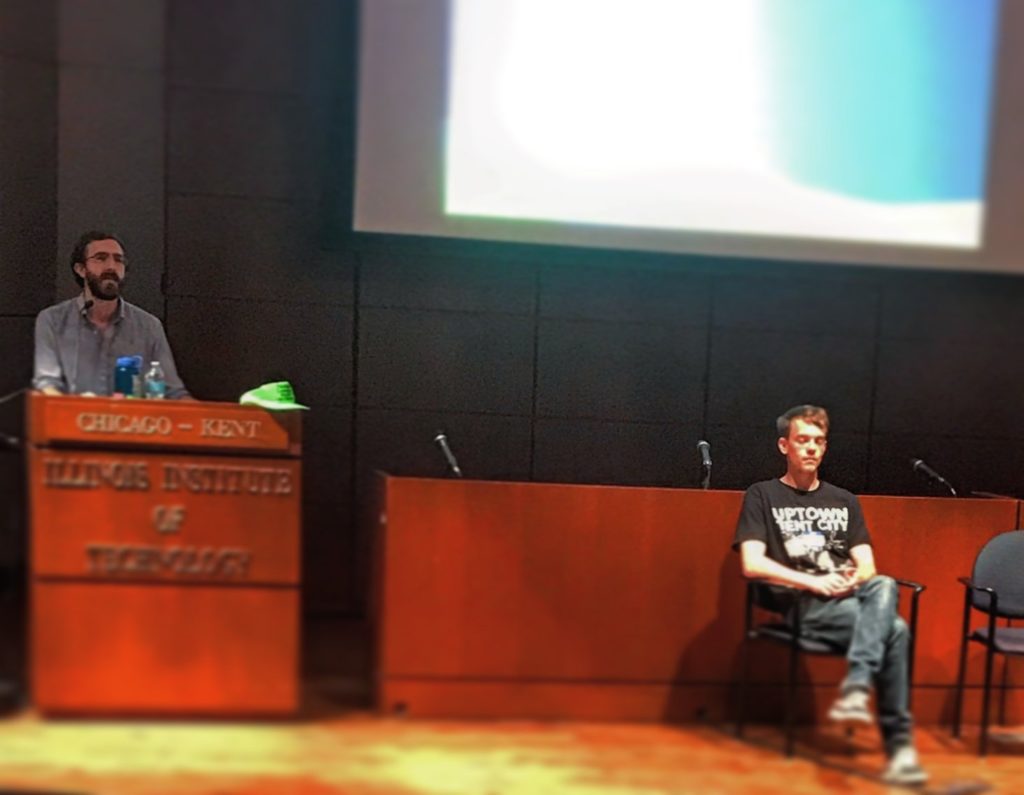
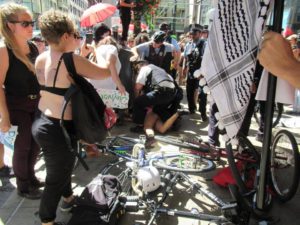
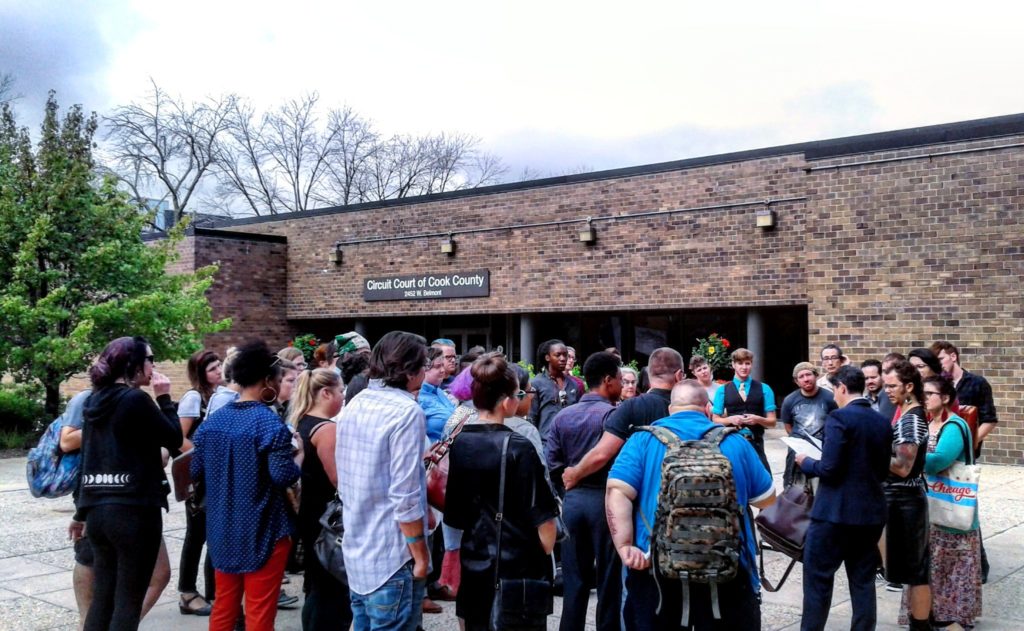
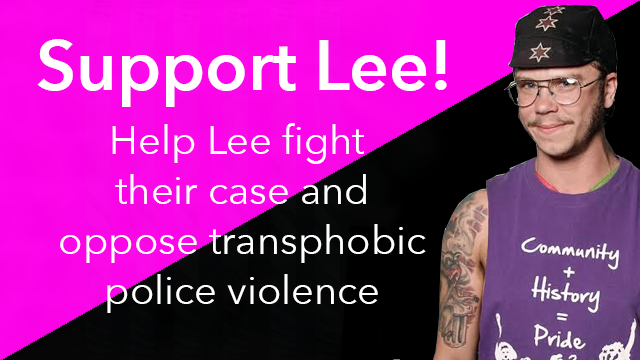
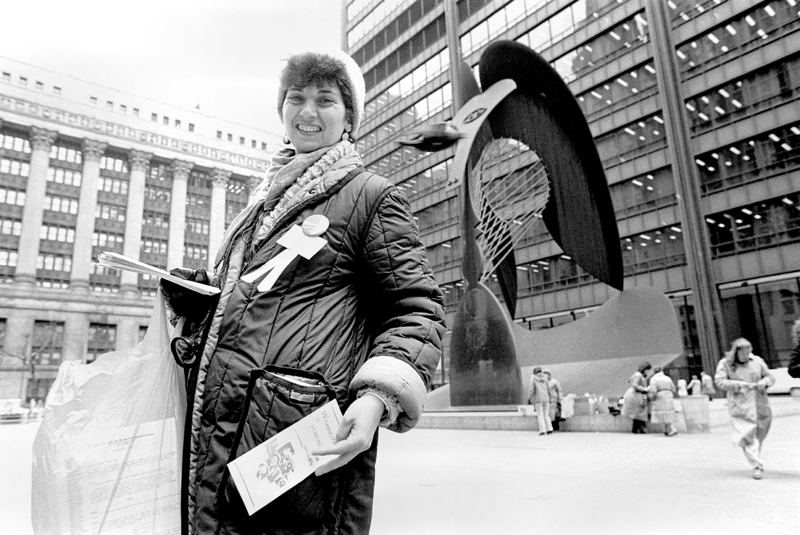
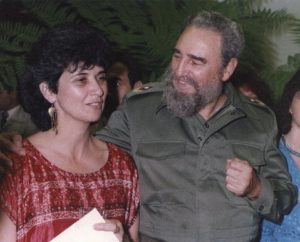 She left DePaul University in 1992, and joined the New York City law firm
She left DePaul University in 1992, and joined the New York City law firm 
